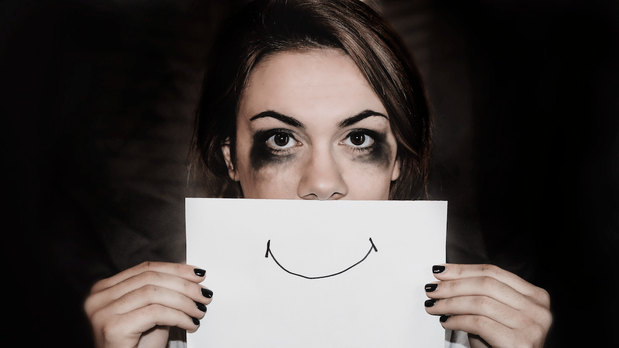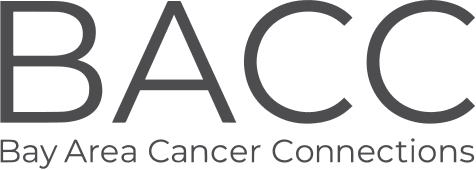
Many people are unaware of how difficult it is to answer social greetings when one is in crisis. They ask “how are you” mechanically, without thinking. I’ve done that in the past. Before my experience of cancer painfully opened my eyes to the stress of social greetings. I suddenly became one of many struggling everyday to respond to “how are you”. I wrote this post to share my experience, and bring light to this unsettling gap.
Before cancer I didn’t think twice about answering “how are you”. I replied “fine” most of the time, often adding a smile. But now as a cancer patient, hearing “how are you” generates panic inside me. I can feel my belly tighten. My chest contract. My autonomous nervous system getting ready for danger. How am I going to answer this question?!
Here is an episode to illustrate. I was at the cancer center checking in for a follow up appointment, and the receptionist asked, “how are you” and paused. All of a sudden, I felt my body freeze. The first thought that popped into my head was: Shouldn’t he know that he works in an Oncology Department, and that this isn’t an easy question for cancer patients?! Instead I answered “fine”, to keep things simple. No point on lashing out on the poor man. My body, however, wasn’t satisfied with my response. And it made a point of letting me know. I felt a twinge inside my belly. And a protesting voice that said, “I’m not fine!”
While “fine” worked well for a while, after many months of living with cancer, my body is getting tired of lies. (Or is it me becoming more mindful?) Either way, it’s time to find an answer that does not make me feel disconnected from my body.
I tried different responses with various levels of success. Here is another exchange, which also occurred at the hospital. That was week three of a monthlong-daily-radiation-marathon. I ran into one of the administrators I had met the week prior. He recognized me and said, “how are you?” with a grim. That day I was definitely not fine. I was feeling cranky and depleted from the cumulative effects of treatment. The conversation went something like this:
- Him: “How are you?”
- Me: (Panicked). “Hmm, I am not sure how to answer this question as a cancer patient.”
- Him: “How are you besides cancer?”
- Me: (Feeling an irritated thought arise). How I am besides cancer??! You moron. I’m undergoing daily radiation in your department. You should know better!!! Instead I replied calmly, “well, cancer is taking over my life right now, so I am not sure how to answer your question.”
- Him: “Oh I know exactly how you feel! I broke my elbow once and was miserable for an entire year!”
- Me: (Stunned). Ouch, that made it worse. “Well, I’d better get to my appointment”, I said, and walked away.
The exchange made me feel like I had been stabbed. I shared it with a psychologist, and she pointed out that people often use “how are you” as a greeting rather than a question. Therefore I do not have to reply literally. “Answer with a greeting”, she advised. “I use ‘good morning’ when I am in this situation”. Well that may work for her. But it didn’t work for me. The next day I was on the phone with my health insurance. The agent greeted me with “how are you”, and I replied “good morning” hoping she would move on. Instead she paused and asked, “but how are you?” Well this time it was clearly a question. I replied that I was a cancer patient currently undergoing treatment, and that I was not having a good day. To which she launched into a tirade of unsolicited cancer advice. (God spare me!) It’s hard enough to be ill without having to hear such lectures everyday from people who neither have medical credentials nor cancer experience.
Mindful Coping StrategiesBelow are strategies that helped me navigate the pain of social interactions during my cancer journey. Rather than closing up when I hear “how are you”, they’ve helped me stay open, and engage in conversations I used to shy away from.
1. Use an unexpected word. A response that works well for me these days is “frazzled”. This word came to me in the middle of the night. I tried it subsequently, and found it worked with both friends and strangers. For people who don’t want to know, or don’t have time to listen, it passes the acceptability test. On the other hand for friends who want to know, and have time to listen, it gives them an easy opening to ask “what do you mean by frazzled?” (It’s a singular response). Then I can explain that it’s a strategy that enables me to answer “how are you” with honesty, while paving the way to a genuine conversation. I like the the peculiarity of world frazzled. It’s different, vague, and descriptive at the same time. And it pretty much describes how I feel when I hear “how are you”!
2. Reframe the question. Take control of the situation and lead it to where it suits you. “It would be easier for me to answer ‘how are you today?’”, I venture to say, “I find it less overwhelming”. Reframing the question gives me an opportunity to reply: “Today I am feeling ____ “. Adding “today” or “in this moment” normalizes the situation for me. It’s not as big of a question to answer. It also prompts me to connect to the present moment. And in some moments, I actually feel fine. Savoring the good goes a long way towards healing one’s body. (But don’t go assuming that I’m happily sailing through cancer, because it aint definitely easy!)
3 . Radical honesty. Share with others that “how are you” is a hard question to answer as a cancer patient. My personal experience has shown me that this strategy is only beneficial in a small number of cases. With trusted people who have the time to listen, and the skills to hold pain. Otherwise it can be painful, as the above examples illustrated.
I hope that sharing my below-the-surface-experience will be useful to some of you. Perhaps it prompted you to reflect on your own experience or to the deeper meaning of social greetings. Thank you for reading. I look forward to reading and responding to your comments. About the Author: Sylvie Leotin
Sylvie Leotin is an entrepreneur, writer, speaker, consultant, and polymath. A gold-medal ballerina and computer scientist, she combines a unique breadth and depth of expertise, with a keen eye for connecting the dots between disciplines, thoughts, people and ideas. Learn more about her at sylvieleotin.com.

